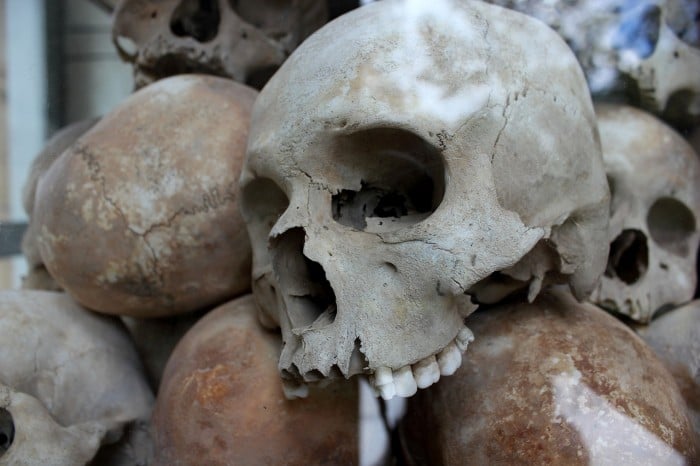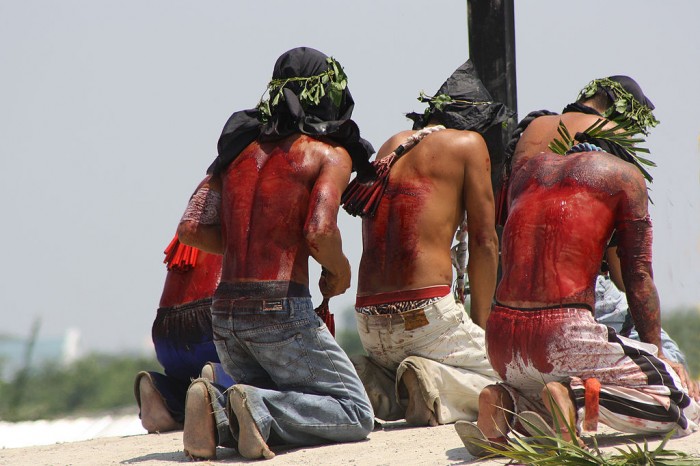The Philippines is rich in history, culture and tradition. But do you know the country also has some of the strangest and morbid rituals in the world? These cultural rituals in the Philippines are so bizarre or mindblowing, they will surely make you cringe!
Also read: 12 Most Exciting Philippine Festivals You Don’t Want to Miss
Pukpok
The word “pukpok” in the Philippines literally means to hammer something. Circumcision in the country is a mandatory tradition inspired mainly by religion. Circumcision among young boys is usually done in summer before classes start. Nowadays, it is done by accredited practitioners to ensure that there is no risk in the procedure.
However, in some parts of the country, the traditional way of circumcision is still being practised. Boys will chew in some guava leaves while a known local practitioner would remove the foreskin of the male genital. Afterwards, the chewed guava leaves will be put over the affected area to minimise pain and infection. Medical experts, of course, do not approve of this kind of procedure as it is unsanitary and might lead to health risks in the future.
Kutkot

Kutkot is a fading tradition that is practised by members of the Hanunuo Tribe. After burying the dead for a year, relatives clean the skeleton and cover it with a cloth to take up the shape of a mannequin or even a mummy called “sinakot”. It is then adorned with clothes and even jewellery. The body is returned to the family and is housed there for another year. After that period, the body is sent to a cave where the rest of the sinakot are taken (Cabrera, 2010).
Also read: Sagada Hanging Coffins: Old Burial Tradition in the Philippines
Baliw-baliw Festival
“Baliw” in Filipino means crazy. Every May, residents of Barangay San Vicente in Olango, Cebu celebrate the Baliw-baliw festival on the day with the highest 12-noon tide (Domanguera, 2014). Men would cross-dress as women and pretend to give birth by the shore. They would also carry around wooden sculptures of a man’s genitals. Although its conception is a mystery, locals celebrate the festival to give thanks to blessings received.
Aswang Festival
The Philippines has many superstitions and folklore stories. Growing up, children are made aware of aswangs, which are witches or monsters that roam in the dark. Roxas City in Capiz is notorious for being the home of aswangs. In the hopes of reversing the stigma and boosting the city’s tourism, a group called Dugo Capiznon Inc. created the festival in 2004 (Aswang Project, n.d.). However, it only lasted for three years and has not been revived since. The festival showcased the different mythical monsters known in Philippine culture.
Penitensya

Image credit: istolethetv
As a Catholic nation, the Philippines does not take penitence lightly. Once, when we were travelling home from Caramoan to Leyte during our Holy Week adventure, we came across a group of men parading the streets and striking their already bleeding backs with whips. In Pampanga, a bloody crucifixion re-enactment is held every Good Friday. While this ritual is not supported by the Catholic Church, many devotees still do this to imitate Jesus Christ’s sufferings and show gratitude to God.
Also read: Shockingly Passionate Good Friday Commemorations Around the World
I see you already cringing from these bizarre rituals in the Philippines. Although these traditions are not practised by the majority, we understand where you’re coming from.
Featured image credit: Karen Noah | Flickr





